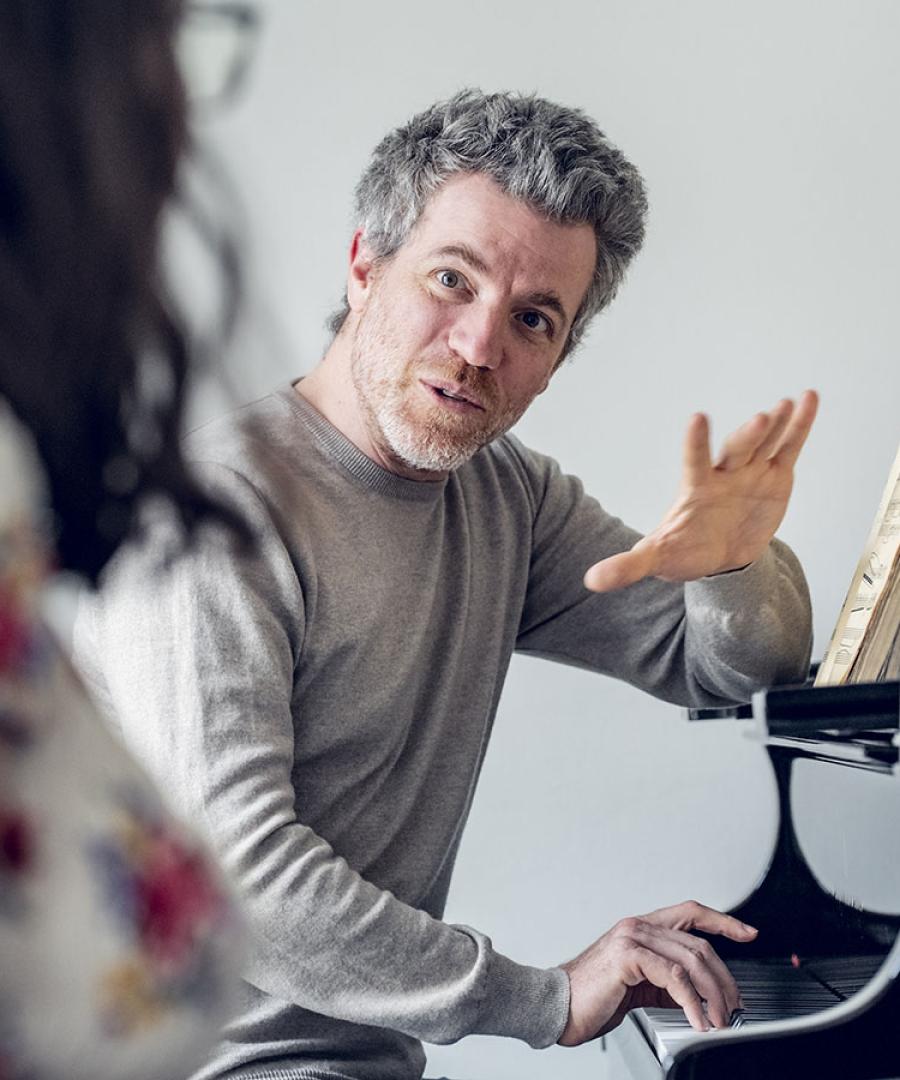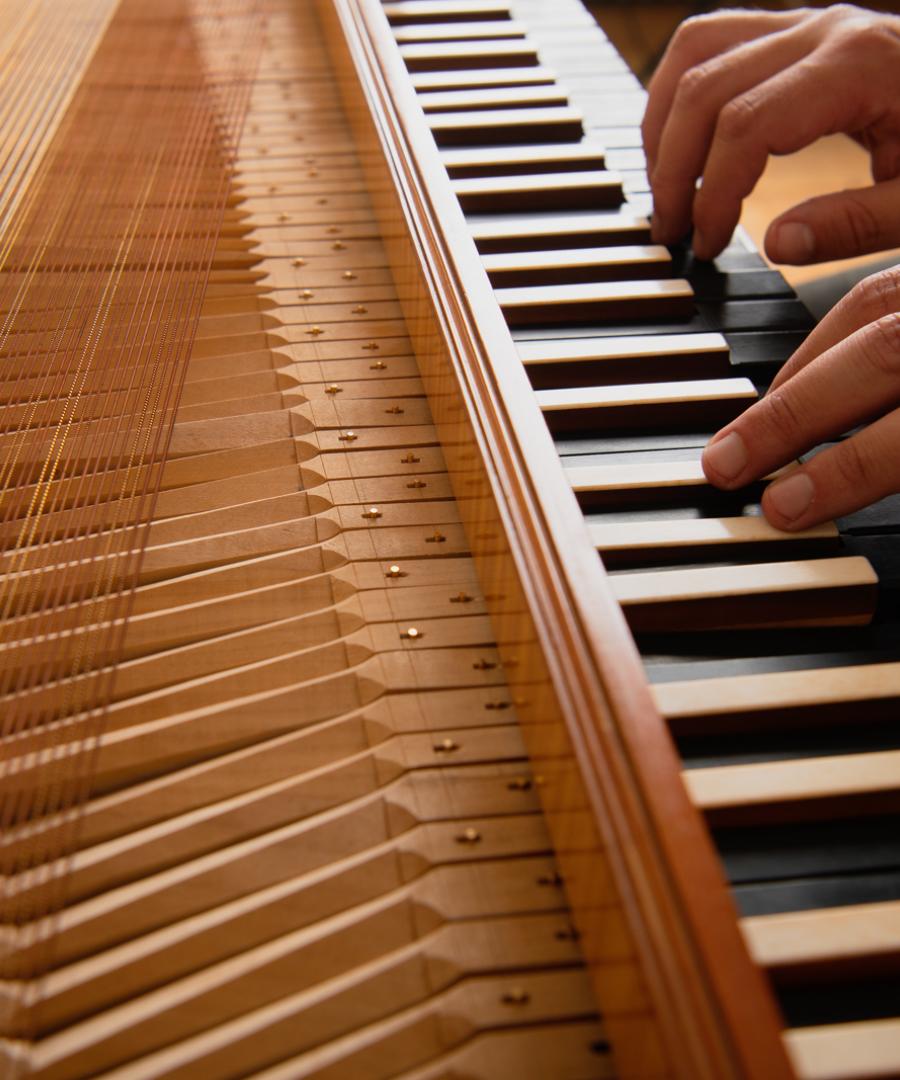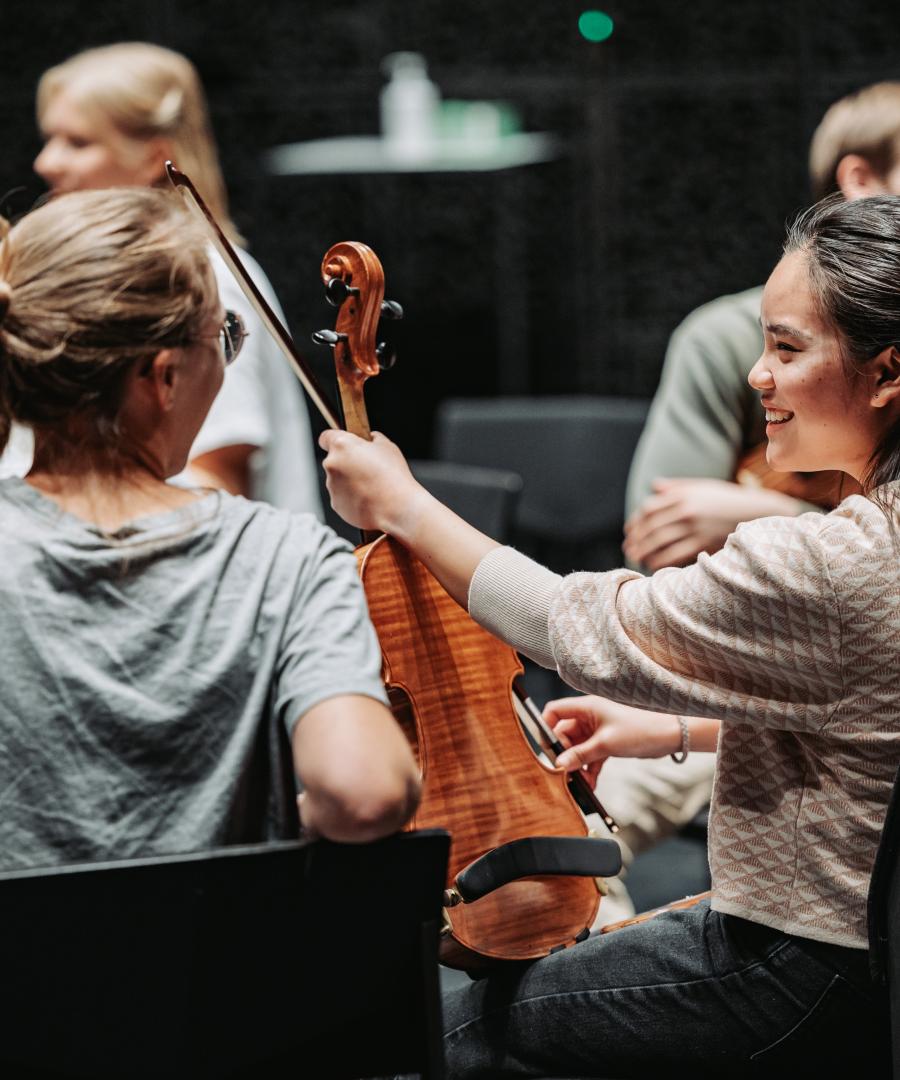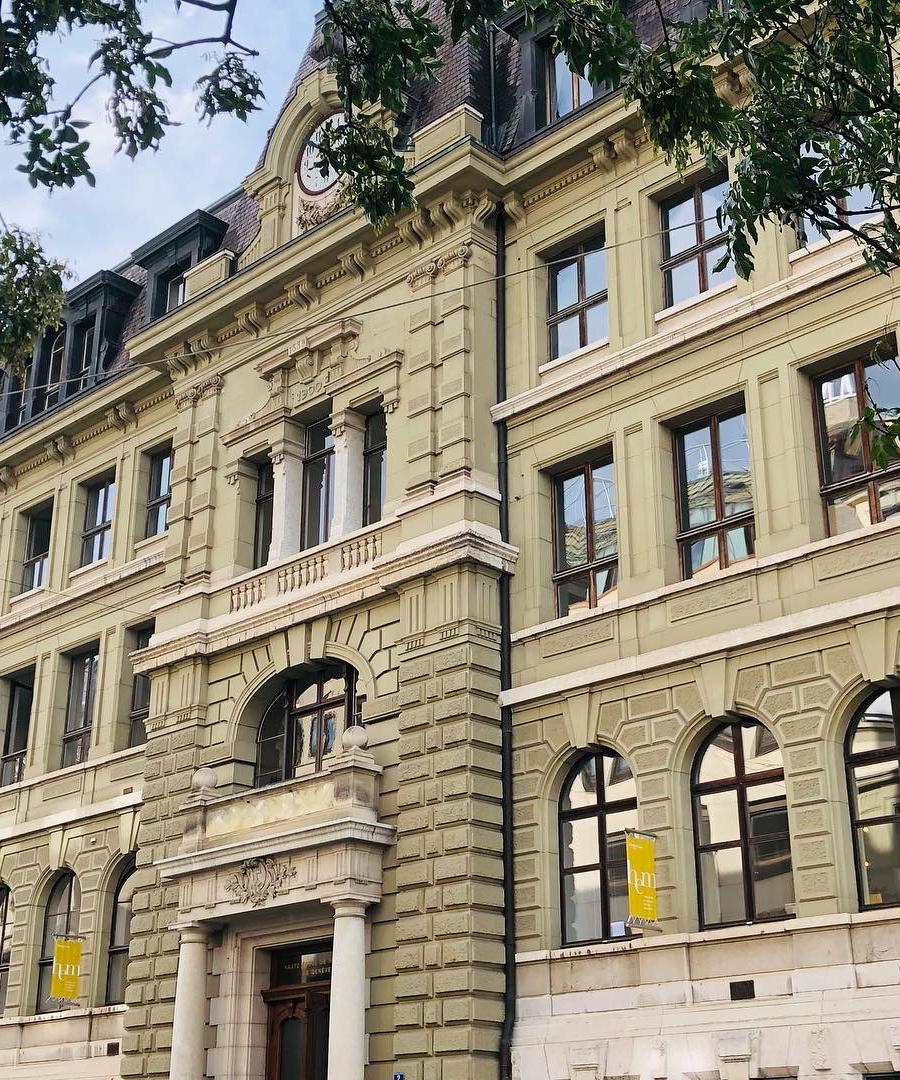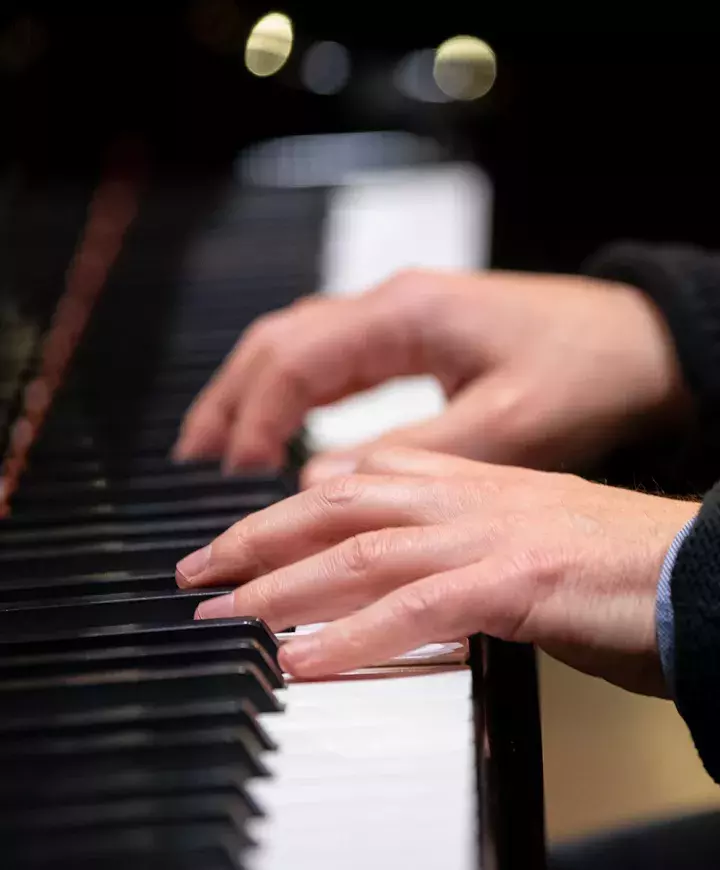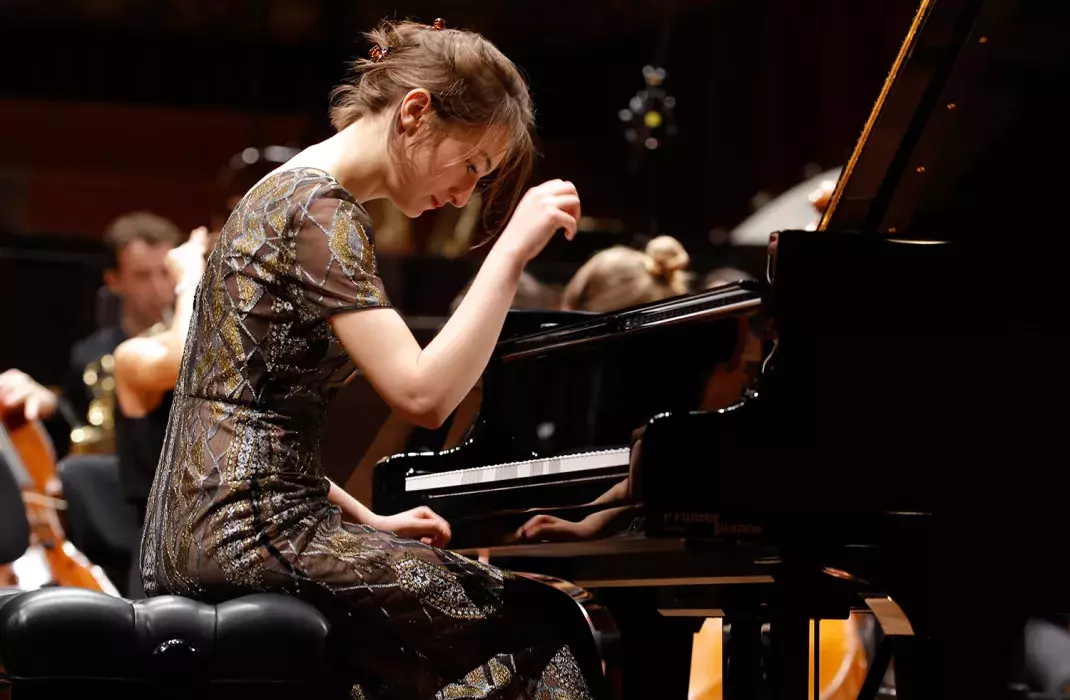- Studies
- Disciplines
- Research
- Events
- The school
Accompaniment and singing conductor option
This area of study prepares students for work as an accompanist on the piano at institutions producing or teaching music. The singing conductor option enables students to specialize their study pathway on the roles of conductor of singing for opera, and manager of the accompaniment and coaching of lyrical singers.
This area of study prepares students for work as an accompanist on the piano at institutions producing or teaching music.
On top of the artistic skills normally required by performance on stage (instrumental know-how, stylistic skills and artistic sensibility), the role of accompanist calls for:
- rudimental knowledge of vocal and instrumental techniques,
- a dexterity in adapting to playing with an ensemble,
- the ability to master new scores very quickly,
- psychological and pedagogical qualities associated with the managerial role.
Singing conductor option
This option enables students to specialize their study pathway on the roles of conductor of singing for opera, and manager of the accompaniment and coaching of lyrical singers.
A programme of observation internships and practical internships at opera houses enables the students to familiarise themselves with the professional environment. The study plan is supplemented with elements associated with vocal practice, phonetics, diction and conducting a choir.
Study plan
Abbreviations :
e = marked exam
p = validation by participation
rs = internship report
ce = co-assessment
cc = continuous assessment
SA = autumn semester
SP = spring semester
A1, A2, etc. = level of the course (first, second year, etc.)
S1, S2, etc. = level of the course (first, second semester, etc.)
Admission criteria
In addition to the general criteria for access to the Master’s, the following special conditions are requested:
- Excellent level on the piano,
- Skill at accompanying and coaching instrumentalists and singers,
- Ability to quickly assimilate new scores (sight-reading, prepared reading),
- Able to transpose scores and reduce them down for the piano.
Study programme
Main training
The individual piano accompaniment classes are supplemented with a programme of practical internships aimed at future integration into the profession.
Special training
The special training module is comprised of sight-reading classes, classes on reading scores and transposition, practice of a melodic instrument or singing and lyrical diction, enabling future accompanists to grasp the interpretative challenges facing the people they are going to accompany. An initiation in conducting a choir or orchestra is also proposed. Finally, the student begins to acquire the repertoire with which they will be confronted most often in their professional practice.
Complementary and optional training
In this module, the student is plunged into collective practice and into the acquisition of analytical thinking skills. The preparation for professional work enables them, moreover, to familiarize themselves with the diverse professional realities that await them on completion of their studies.
Master’s Project
The Master’s project is centred around artistic production at two public recitals that make it possible to assess the candidate in the accompaniment of singers and instrumentalists. A test conducted in camera enables the examiners to check specific technical skills (sight-reading, coaching). The project also involves a section on critical thinking when encountering a musical text and traditions of interpretation.
